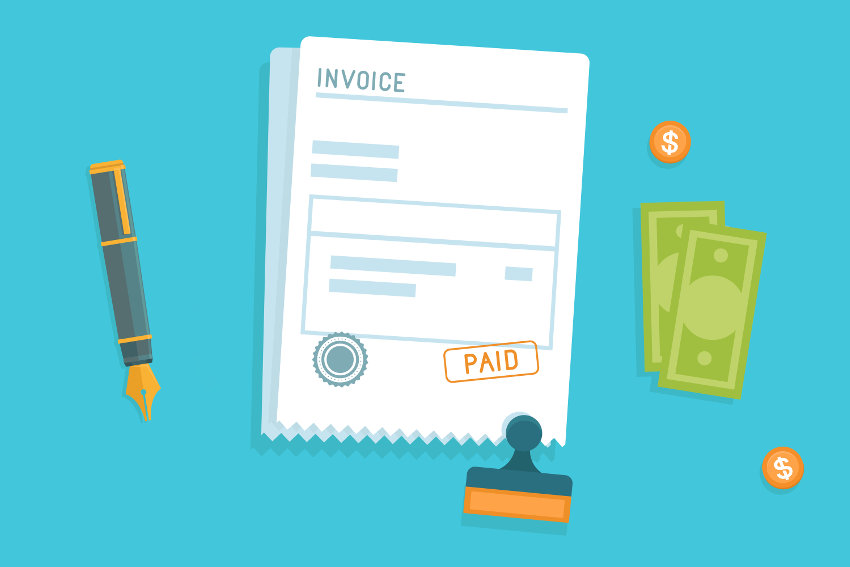Debt funding is far from the most recommended way to finance your business. However, with equity financing taking a long time to finalize, if you’re able to secure it at all, often going into debt is the only option to get a business started and/or keep it afloat when you have no funds in the bank.
Debt financing can fund a startup, help a growing business in need of money for expansion, or help a long-standing company through tough times. Interest rates and repayment terms will largely determine which debtor a business should choose to take a loan from.
There are several types of debt financing to choose from. Some work great for startups; others work best for established companies with a good or excellent credit rating.
Credit cards have been left out of this discussion, as their exhorbitantly high interest rates aren’t an appropriate source of funding for any business, other than for minor and inexpensive emergencies.
Types of Debt Funding

Here are the most popular forms of debt funding available to businesses:
Business Loans (Banks, Credit Unions, US Small Business Administration, etc.)
Bank loans are a form of debt funding that most business owners are quite familiar with. Depending on your credit rating and the amount of money you need, a loan with a bank, the SBA (who offers loans through the major lending institutions only), a credit union, or other lender can be either really easy or downright impossible to get.
Bank loans are a really good option if you can get them, as you’ll be paying the standard 2.9 – 5% interest rate, depending on your credit. Much cheaper than a credit card or higher-risk lender. Interest rates with private business lenders, online and off, can vary significantly.
Businesses need something tangible, of value, to back up the loan should they not be able to repay it. Unlike factoring, banks won’t send you a bill for what you owe them if they don’t get their money on time; you sign over the collateral they need and they take it and sell it if you don’t pay back your loan.
A traditional business loan is going to be near impossible for most startups to get, and may also be difficult for established businesses who’ve fallen on hard financial times to be approved for.
Recommendations:
- If you have valuable collateral such as property, the business itself, investments, or other items of value; a business loan can be a great idea if you can get a preferred interest rate.
- Be wary of unaccredited private lenders.
- It’s recommended that you have your lawyer and accountant go over any terms such lenders propose very carefully before you consider taking their money.
Overdraft Line of Credit
Requesting an overdraft line of credit is exactly the same as applying for a bank or private lender loan, with one exception: The interest rate charged is considerably higher.
While a business loan will net those with a preferred credit rating and/or valued assets a low monthly interest rate; this type of debt funding is usually dispensed at the current prime interest rate, plus 5% on top, which needs to be repaid along with the principle. This can amount to interest rates well above 8% depending on current prime interest rates.
Recommendations:
- While this is a great option to have for emergencies, overdraft lines of credit should be applied for and kept around for emergencies only.
- While the interest rates are better than the average credit card interest rate, don’t leverage this kind of debt to launch a startup or to grow your existing business.
- In short: If you can get a line of credit from a bank, you can just as easily get a business loan with a much lower interest rate.
Factoring
Factoring can be the easiest debt funding method for a company to get. A factoring company agrees to buy all, or a portion of your “current” receivables (at a chosen upon discount), giving you instant cash to use as you please. Past due invoices aren’t accepted.

The one caveat to this type of funding is that if your clients don’t pay the factoring company, you have to pay the debt yourself, plus considerable interest. Plus, many factoring companies only work with businesses who operate on more than $50,000 in receivables monthly. There are smaller ones, though, who offer financing to companies who have at least $5,000 in invoices to sell.
No two factoring companies operate the same way. Read the terms and fine print to compare deals if you’re considering this option. There are several online vendors changing this space considerably. Some will front up to 85% of your invoice amount immediately, then only charge you 1% interest on the remaining balance every week until your clients pay.
Recommendations:
- If you have clients who pay their bills quickly, a factoring company is a great way to get short term funds.
- After a couple of successful transactions, the larger factoring firms will offer you a line of credit extending from $5,000 – $500,000. Find a list of recommended firms at the bottom of this page.
- Obviously, few, if any startups are going to have a large pool of receivables to sell off, so in most cases this is an option that only established businesses can opt to use.
Trade Credit
Trade credit isn’t a way to receive funding cash, but rather to help get the doors opened by stocking the shelves, and getting the equipment needed to start a company. It can also be used by established companies who’re operating in the red and need to free up their bank account by holding off on paying their bills.
The way trade credit works is simple: A business asks the supplier to “loan” them the supplies and/or merchandise they need, with payment due in 30, 60 or 90 days. Every supplier is different and some will not agree to any trade credit terms whatsoever.
This option, like any loan, will cost you. Most vendors will charge at least 15% on top of the balance; however, some will offer lower rates if you can pay the balance off more quickly.
Recommendations:
- This debt funding option is perfect for startups and established businesses; more out of necessity more than anything in a startup’s case.
- As with any debtor, make sure you vet your suppliers carefully to see how honestly they do business.
- Don’t be afraid to shop around if yours refuses to offer this option, or if you feel they’re charging you too much for the privilege.
Loans from Peers and Relatives
This type of debt funding may seem like the least attractive, but interest rates and “payment forgiveness” should put it on the top of every small business owner’s list of options. Repayment terms can be more flexible and if you need to miss a payment here or there, most friends and relatives will be much more forgiving than the bank will.
Peer-to-peer lending is another loan option to consider. Sites like Prosper.com and Lending Club are a great option to find peers looking to lend money, if you’re looking for a small loan under $35,000. These sites connect individuals and businesses with individual and institutional investors who offer interest rates as low as 5.9% if you have a good credit rating.
Recommendations:
- If you decide to borrow from relatives or friends, make sure you draft an agreement on the repayment terms.
- When dealing with P2P lenders, make sure you use an established, well vetted platform.
- Consult a business lawyer in either case if you want to make sure you’re making a smart decision with these types of business debt funding.
What’s Trending in Debt Funding Right Now?

The most popular trend in debt funding for business is in online small business loans from “alternative lenders” (view Fundera’s Top 25 here). Unfortunately, there’s good news and bad on this front.
Some small business owners have had great success finding loans with these lenders when banks wouldn’t even give them a second look. However, there are several companies in this space that are essentially stealing money from unsuspecting business owners.
Be wary of alternative lenders who charge a large advanced fee just for you to qualify for a loan and get access to their lenders. There are a number of other shady fees some of these lenders charge including “insurance” fees and even to the point of telling you that you’ve been approved for the loan, but must pay 3 months worht of payments in advance to secure the funds. These are usually outright scams.
Also, make sure you understand all implications involved with your loan agreement with them, including the very high interest rates you’ll likely be expected to shoulder along with the principal payments.
Recommendations:
- Scour as many sources as you can before settling on an alternative lender. Make sure the lender has a physical address and a phone number you can call.
- Always use the rule of thumb “If it’s too good to be true, it probably is.”
- Also, remember to consult a business accountant and/or attorney before proceeding to agree to any sort of contract with an alternative lender.
Pros of Debt Funding a Business

You keep all the business
While equity funding has its advantages from a cash flow standpoint, you will lose a portion of your business in the process. Debt funding your business allows you to keep a full equity stake in the business.
Tax benefits
Both the principal and interest payments paid out to a lender are a business expense, deductible at tax time. When factored into the overall interest rate you’re paying, the tax savings effectively lowers whatever interest rate you’re paying upfront.
Immediate Cash Infusion
Raising funds through a venture capital firm, angel investor, or through crowdfunding takes time – usually months. All the debt funding methods mentioned previously take no more than a week to secure – some taking less than 24 hours.
Cons of Debt Funding a Business

You have to pay it back
With equity financing deals, you do have to give up a share of your business, but you’re not liable for the funds if the business ends up failing. With a debt funding deal, you’re always liable for the money/merchandise you borrow, plus interest.
Payments and interest hurt your overall profits
When seeking extra funds, you’re either broke, or in need of growth funds. Either scenario is exacerbated when an extra monthly bill is added and you have to spend profits to pay back a loan.
Potential harm to your credit rating
Every time you borrow money, the credit bureaus are notified, a notation is made, and your list of liabilities increases. This can make it harder to secure future loans and, if you miss payments because the money isn’t there, you become an even bigger credit risk to lenders.
Want to Learn More?
Funding Note is here to help. Sign up for our newsletter today and we’ll send you regular updates to keep you abreast of what’s trending in the world of business funding.
Feel free to contact us any time if you have any questions for our staff or our partners.


